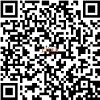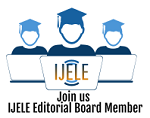(2) Ya-Fei Yang
*corresponding author
AbstractFollowing the educational reform trend around the world, Oman and Taiwan emphasize on teacher quality to improve student learning. This study investigated the relationship between teacher quality and eighth graders mathematics achievement in Oman and Taiwan by utilizing TIMSS 2011 data. The research question examined to what extent teacher quality as defined by the measurable variables (teacher qualification, teaching practices and professional development) impacts student achievement in Oman and Taiwan. The study employed Ordinary Least Square (OLS) statistical analysis to examine the relationship between teacher quality and eighth-grade student math performance in both countries. The results show that teacher quality indicators in Oman and Taiwan have a positive impact on eighth graders mathematics achievement. However, teacher quality variables that influence student achievement in both countries vary depending on the education context, student characteristics and school factors. The study findings support policy intervention aimed at improving teacher quality and recommends providing more opportunities for participation in content-focused and pedagogical-focused professional development.
KeywordsTeacher Quality Mathematics TIMSS; Student achievement; Educational reform
|
DOIhttps://doi.org/10.31763/ijele.v1i2.39 |
Article metrics10.31763/ijele.v1i2.39 Abstract views : 6090 | PDF views : 2562 |
Cite |
Full Text Download Download
|
References
J. Coleman, E. Campbell, C. Hobson, J. McPartland, A. Mood, F. Weinfeld, and R. York, Equality of educational opportunity, Washington, DC: U.S, Government Printing Office, 1966.
Organization for Economic Co-operation and Development (OECD), Teachers Matter: Attracting, Developing and Retaining Effective Teachers, Paris: OECD, 2005.
E. Hanushek, “Why quality matters in educationâ€, Finance and Development, pp. 15–19, 2005.
L. Darling-Hammond, “Teacher quality and student achievement: A review of state policy evidenceâ€, Education Policy Analysis Archive, vol 8(1), pp. 1-44, 2000, Retrieved Mar. 10, 2015, from http://epaa.asu.edu/ojs/article/view/392.
Q. Al Shannag, H. Tairab, H. Dodeen, and f. Abdel-Fattah, “Linking science teachers’ quality and student achievement in TIMSS science: A comparison between Kingdom of Saudi Arabia and Republic of Singaporeâ€, 2014, Retrieved Mar. 5, 2015, from https://www.academia.edu/25397605/Linking_Science_Teachers_Quality_and_Student_Achievement_in_Timss_Science_A_Comparison_Between_Kingdom_of_Saudi_Arabia_and_Republic_of_Singapore
L. Darling-Hammond, B. Berry, and A. Thorenson, “Does teacher certification matter? Evaluating the evidenceâ€, Educational Evaluation and Policy Analysis, vol 23 (1), pp. 57-77, 2001.
S. Lin, P. Hung, and F. Lin, F, “A remedial action based on Taiwanese students’ results of TIMSSâ€, 5th IEA international research conference, Nanyang Technological University, Singapore, 2013, Retrieved from http://www.iea.nl/fileadmin/user_upload/IRC/IRC_2013/Papers/IRC-2013_Lin_etal.pdf, Date of access: 4/4/2015.
Ministry of Education Republic of China (Taiwan), 2015, Retrived from
http://english.moe.gov.tw/.
L. Goe, “The link between teacher quality and student outcomes: A research synthesisâ€, Washington, DC, National Comprehensive Centre for Teacher Quality, 2007, Retrieved Mar. 10, 2015, from http://files.eric.ed.gov/fulltext/ED521219.pdf
S. Knight, “Evaluation of teacher qualityâ€, in Handbook on measurement, assessment, and evaluation in higher education, C. Secolsky (Ed.), New York: Routledge, 2012, pp. 584-592.
R. Heck, “Examining the relationship between teacher quality as an organizational property of schools and students’ achievement and growth ratesâ€, Educational Administration Quaterly, vol 43(4), pp.399-432, 2007, Retrieved from: https://journals.sagepub.com/doi/abs/10.1177/0013161X07306452
M. Strong, “The highly qualified teacher: What is teacher quality and how do we measure it?†Teacher College: Columbia University, 2011.
J. Metzler, and L. Woessmann, “The impact of teacher subject knowledge on student achievement: Evidence from within-teacher within-student variationâ€, CESifo working paper Economics of Education, No. 3111, 2010.
M. Akiba, G. LeTendre, and J. Scribner, “Teacher quality, opportunity gap, and national achievement in 46 Countriesâ€, Educational Researcher, vol 36(7), pp. 369-387, 2007.
W. Sanders, and J. Rivers, “Cumulative and residual effects of teachers on future student academic achievementâ€, Knoxville: University of Tennessee Value-Added Research and Assessment Center, 1996.
S. Wright, S. Horn, and W. Sanders, “Teacher and classroom context effects on student achievement: Implications for teacher evaluationâ€, Journal of Personnel Evaluation in Education, vol 11, pp. 57–67, 1997.
D. Monk, “Subject matter preparation of secondary mathematics and science teachers and student achievementâ€, Economics of Education Review, vol 13 (2), pp. 125–145, 1994.
J. Brophy, “Teaching (functional practices series 1â€, Geneva and Brussels: International Bureau of Education and the International Academic of Education, 2001.
L. Darling-Hammond, and P. Young,†Defending highly qualified teachers: What does “scientifically-based research†actually tell us?â€, Educational research, vol 31(9), pp. 13-25, 2002.
J. Rice, “Teacher quality: Understanding the effectiveness of teacher attributesâ€, Washington, DC: Economic Policy Institute, 2003.
A. Wayne, and P. Youngs, “Teacher characteristics and student achievement gains: A reviewâ€, Review of Educational Research, vol 73(1), pp. 89-122, 2003.
P. Ashton, and L. Crocker, “Systematic study of planned variation: The essential focus of teacher education reformâ€, Journal of Teacher Education, vol May-June, pp. 2-8, 1987.
R. Ferguson, and S. Womack, “The impact of subject matter and education coursework on teaching performanceâ€, Journal of Teacher Education, vol 44(1), pp. 55-63, 1993.
D. Goldhaber, and D. Brewer, “Does teacher certification matter? High school teacher certification status and student achievementâ€, Educational Evaluation and Policy Analysis, vol 22 (2), pp. 129-145, 2000.
R. Murnane, and B. Phillips, “Learning by doing. Vintage and selection: Three pieces of the puzzle relation teaching experience and teaching performanceâ€, Economics of Education Review, 1981.
E. Hanushek, and S. Rivkin, “Teacher qualityâ€, in Handbook of the economics of education, E. Hanushek and F. Welch (Eds.), vol. 2, Amsterdam, The Netherlands: North-Holland, 2006, pp. 1051–1078.
R. Zuzovsky, “Teachers’ qualification and their impact on student achievement. Findings from TIMSS-2003 data in Israelâ€, 2008, Retrieved Mar. 10, 2015, from http://www.iea.nl/fileadmin/user_upload/IRC/IRC_2008/Papers/IRC2008_Zuzovsky2.pdf.
D. Cohen, and H. Hill, “Instructional policy and classroom performance: The mathematics reform in Californiaâ€, Paper presented at the Annual Meeting of the American Educational Research Association, Chicago, IL, 1997.
D. Wiley and B.Yoon, “Teacher reports of opportunity to learn analyses of the 1993 California learning assessment systemâ€, Educational Evaluation and Policy Analysis, vol 17 (3), pp. 355-370, 1995.
I. Mullis, M. Martin, P. Foy, & A. Arora, TIMSS 2011 International Results in Mathematics, Chestnut Hill, MA: TIMSS & PIRLS International Study Center, Boston College, 2012. Retrieved from: https://timssandpirls.bc.edu/timss2011/downloads/T11_IR_Mathematics_FullBook.pdf.
Byun, S, and K. Kyung-keun, “Educational inequality in South Korea: The widening socioeconomic gap in student achievementâ€, Research in Sociology of Education, vol 17, pp. 155-82, 2010.
I. Mullis, M. Martin, and P. Foy, (with J. Olson, C. Preuschoff, E. Erberber, A. Arora, and J. Galia), “TIMSS 2007 International mathematics report: Findings from IEA’s trends in international mathematics and science study at the fourth and eighth gradesâ€, Chestnut Hill, MA: TIMSS & PIRLS International Study Center, Boston College, 2008.
Ministry of Education (Oman) and the World Bank, “Education in Oman the drive for qualityâ€, 2012.
N. Clarck, “Education in Taiwanâ€, World Education News and Reviews, 2010, Retrieved from: http://wenr.wes.org/2010/05/wenr-may-2010-feature/. Date of access: 4/20/2015.
T. Jen, C. Lee, K. Chen, C. Lin, and P. Lo, “Chinese Taipei. TIMSS 2011 Encyclopediaâ€, TIMSS & PIRLS International study center, 2011.
Z. Al-Maskari, F. Noorani, and S. Al Kharousi, “Oman. TIMSS 2011 Encyclopediaâ€, TIMSS & PIRLS International study center, 2011.
Refbacks
- There are currently no refbacks.
Copyright (c) 2019 Intisar Ambussaidi, Ya-Fei Yang

This work is licensed under a Creative Commons Attribution-ShareAlike 4.0 International License.

International Journal of Education and Learning
ISSNÂ 2684-9240
Published by Association for Scientific Computing Electronics and Engineering (ASCEE)
W : http://pubs2.ascee.org/index.php/ijele
E : zalik@ascee.org

This work is licensed under a Creative Commons Attribution-ShareAlike 4.0 International License.





















